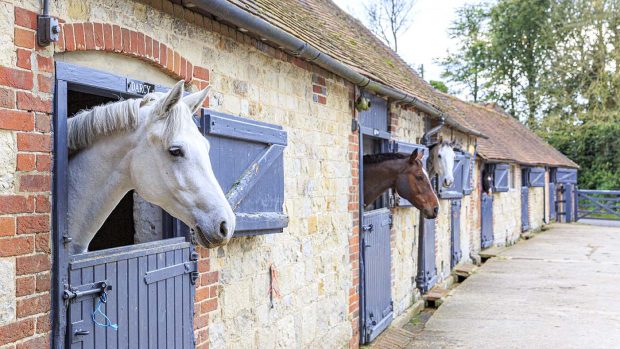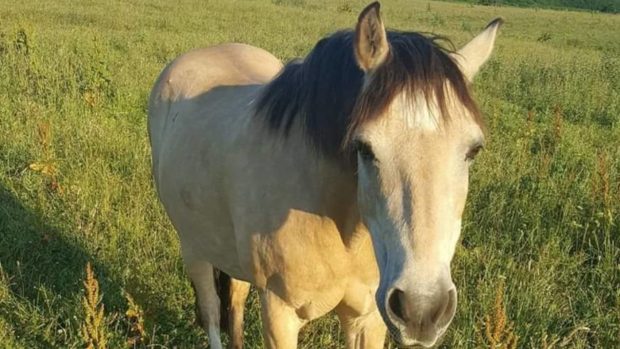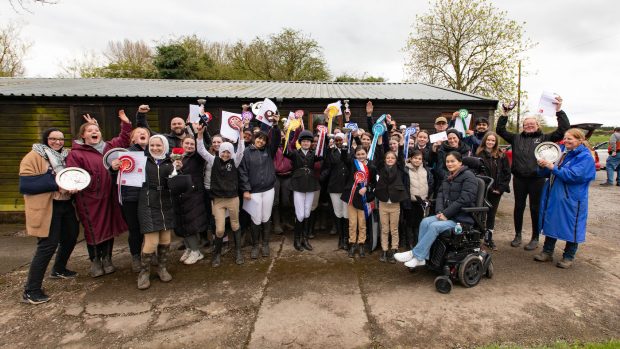With spiralling insurance costs and growing layers of regulation, it seems profitable riding schools are as elusive as Shergar. But is this really the case? Philip Clark, owner and general manager of Hinckley Equestrian Centre, thinks not.
Eight years ago he and his wife Jackie bought the run-down centre, and invested an initial £150,000 upgrading the facilities, including the building of a 40m x 20m indoor school. Following a strong business plan, the centre now makes a profit with annual sales of £500,000 from around 450 weekly customers.
So how can a riding school sustain itself? Not all equestrian business owners would relish the prospect of running an operation the size of Hinckley, but, says Anna Jordon, an advisor from Dark Horse Business Consultancy, any yard should run on a commercial basis even if the proprietor is primarily funding their passion for horses. Clark agrees: “There’s nothing wrong with being in business as a lifestyle choice, but if your costs are £75,000 and your revenue is only £70,000, obviously there’s a problem.”
Jordon says it’s crucial to plan your business properly. Often proprietors of equestrian businesses are in the position that they can start a business without the need for a loan (for example if starting with existing stables on their own property), meaning that they don’t have to go through the discipline of putting together a business plan to obtain the cash to implement their ideas. “As a result, equine businesses often have no long-term strategy for a sustainable business,” she says. This is essential for all businesses, new or established.
So what advice is there for equestrian centres who want to rise above the doom and gloom? HHO has collated some common sense tips for success.
Get advice
Whatever stage your business is at, there is help available. Clark recommends Business Link in England (www.businesslink.org.uk – organisations for Scotland, Wales and Northern Ireland have links on the website).
Don’t expect in-depth equestrian knowledge, but they have a remit to give as much advice as possible, on issues such as putting together a business plan, without charging. You will always be told up front if any payment will be required. You can also compile an online “start-up checklist” on their website of the regulations you must comply with.
“There’s tons of free advice,” says Clark. “Our bank manager has also been hugely useful and the British Horse Society has some very helpful departments.”
The BHS (www.bhs.org.uk) has a dedicated free business support line for all its members, offering advice on issues including contract and commercial law, debts and debt recovery, employment and personnel, and health and safety. The Association of British Riding Schools (www.abrs.org) can also provide advice on specific aspects of equine business.
The Country Land and Business Association (www.cla.org.uk) has negotiated reduced rates for its members on services such as insurance, utilities bills and rural finance.
Your product
Sharon Eastwood, also of Dark Horse, recommends reviewing the service you are offering and asking whether you could do anything different to distinguish yourself in the marketplace.
Pen-llyn Lusitano Stud and Riding Centre, N Wales, for example, owned by the Pendlebury family, started life as a trekking centre for passing seasonal tourists. Janine Pendlebury followed her passion for Portuguese horses and classical dressage, and the business diversified into this specialist area along with livery and training. While the family has maintained the trekking side of the business, after 10 years of hard work the change of focus has provided them with a year-round clientele, and an income from giving classical displays around the country.
It is also important to think about your customer needs. In the case of Hinckley, many clients come from non-countryside areas. Clark recognises that his clientele do not want to negotiate bad gates or mud when moving around the premises. He also realised the facilities for parents bringing their children for lessons were very important to make the visit a fun and comfortable experience for all.
Utilise your resources
Riding schools should look to maximise their use of their facilities and (within reason) their horses, says Eastwood. Subject to health and safety, this might include hiring out an indoor school for dog training or riding for the disabled.
At Hinckley, Clark realised that their indoor school was only in use at weekends and from 4pm onwards during the week. As a result they decided to become a horse-care training provider during week days to make full use of the facilities. They went on to win contracts with the Learning and Skills Council and now look after the training of about 100 people.
Eastwood also points out that, sadly, a horse that only works for two hours a week is costing more to keep than it earns. Painful as it may be, she says the businesses which succeed tend to take a more objective view. The cost of that much beloved Thelwell pony needs to be factored into your planning.
Cost control
Do not shy away from working out how much it costs to put on a lesson, or to look after a livery horse etc, and look to cut down on any wastage.
With prices you have got to go with the market, according to Jordon. However Clark reviewed the price structure at Hinckley. They had offered group lessons for up to eight people, but found that these classes were often not full to capacity. In consultation with customers Clark took the decision to offer classes restricted to four riders – and doubled the price. They only lost one customer and now have full lessons and a higher income. His view is that almost all riding schools are undercharging for the level of service provided.
Depending on your market, he feels that you should not be afraid to increase your prices if you are offering a quality service, but make sure this is well communicated to your clients.
Marketing
Word of mouth is especially important in the horse business so make sure you are building a good reputation. Be aware of the impression you create on the premises and at shows – for example always keep your horses, tack, premises and lorry clean and tidy.
If you are aiming for people who know nothing about horses but want to learn to ride Clark also recommends a big advert in the Yellow Pages, because this is often their first port of call: “Pay the money for it and you will get it back,” he says.
He also recommends investing in a website. It doesn’t have to be all singing and dancing, but should honestly reflect what you are about and contain all relevant information such as the services you offer and prices etc.
You should also be aware who your competitors (outside the show ring) are but remember this isn’t necessarily other riding schools. It may be other leisure or tourism businesses such as bowling or swimming. This will need to be considered when looking at the service you are offering and how to market and price it.
Staff and insurance
High staff turnover is disruptive to business. Jordon points out that staff members in equestrian businesses are there for more than monetary gain. Job satisfaction plays a big part and it’s important to maintain goodwill with your employees.
Insurance is a major and difficult topic for riding schools. Eastwood advises that you should not be afraid to negotiate – a good health and safety record and membership of the BHS or ABRS can all help to reduce premiums.
The Country Land and Business Association has just launched a petition to change the law in an effort to reduce insurance rates. Sign up at: www.cla.org.uk/animalsactpetition.php




